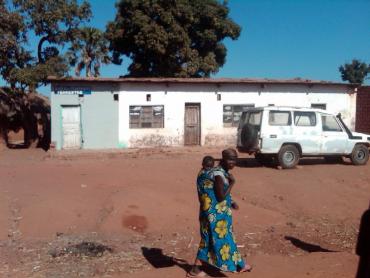The UN Guiding Principles on Business and Human Rights (GPs) were introduced in 2011 and endorsed by the UN Human Rights Council. They state explicitly that the responsibility of business enterprises to respect human rights applies to all enterprises regardless of their size, sector, operational context, ownership and structure. However, the GPs rely on self-policing by business.
In 2005, following a request by the UN Commission on Human Rights, UN Secretary-General Kofi Annan appointed Professor John Ruggie as the Special Representative of the Secretary-General (SRSG) on human rights and transnational corporations and other business enterprises.
Shortly before the SRSG’s mandate expired in June 2011, and following a lengthy consultation and drafting period, a final version of the UN Guiding Principles on Business and Human Rights (GPs) was published and endorsed by the UN Human Rights Council. It is based around the Protect, Respect and Remedy Framework, which rests on three principles: the State’s duty to protect against human rights abuses by third parties, including business; the corporate responsibility to respect human rights; and the improvement of access by victims to effective remedy.
RAID believes that there is considerable room for improvement in the GPs as they stand. There are important issues that the GPs do not adequately address. Moreover, the GPs’ reliance on self-policing allows companies to institute internal grievance mechanisms that are often inadequate: see for example RAID’s 2014 critique Privatized Remedy and Human Rights: Rethinking project-level grievance mechanisms. Indeed the whole mechanism established by the GPs enables companies to privatise and control the implementation of human rights. RAID’s 2016 report, Principles without Justice: The corporate takeover of human rights (http:www.raid-uk.org/documents/principleswithoutjustice-pdf) offers an in-depth critique of company complaints mechanisms as practised by two extractive industry companies Acacia Mining (formerly African Barrick Gold, ABG) operating in Tanzania and Glencore’s subsidiary, the Kamoto Copper Corporation (KCC), in the Democratic Republic of the Congo (DRC). Both companies have explicitly endorsed the UN Guiding Principles on Business and Human Rights (‘GPs’) and adhere to the Voluntary Principles on Security and Human Rights (‘VPs’).
The report also considers the effectiveness of the VPs, since efforts are on-going to fully align them with the GPs. RAID concludes that both sets of principles are a pragmatic solution for companies to consider and manage the human rights impact of their operations, but they do not necessarily offer a solution that brings fair settlement or justice to the victims of abuses.
The consultation process
In November 2010, the SRSG presented a draft series of Guiding Principles for the Implementation of the United Nations ‘Protect, Respect and Remedy’ Framework, and opened a consultation on the document.
RAID and other NGOs expressed significant concerns with the draft and welcomed the fact that some clarification on matters they had raised was included in the final version of the GPs.
The Human Rights Council asked the SRSG to draw up guidance on how the Framework should be put into practice. As the SRSG’s mandate was drawing to an end, RAID and a consortium of NGOs published a statement welcoming his achievements in drawing up the Protect, Respect and Remedy Framework and the GPs but also offering constructive criticism. The NGOs called for robust and effective follow-up to ensure that the UN continued to build upon, and to strengthen, the SRSG’s work.
In July 2011, the Human Rights Council resolved to set up a Working Group to monitor the operation of the GPs. The Council’s resolution fell well short of what the NGOs had requested – not least because the Working Group will examine only the implementation of the GPs and not the adequacy of the Principles themselves. Nevertheless, RAID is proud of its positive contributions to the current UN framework on business and human rights, while recognising that a great deal more work is required.
RAID is now advising the UN Working Group monitoring implementation of the GPs, whilst continuing to argue for their strengthening.
UN and the DRC – background
The war in the Democratic Republic of Congo began when Rwanda and Uganda launched an attack to oust then-President Laurent Kabila from power in 1998. When Angola, Namibia and Zimbabwe intervened on behalf of the Kabila government, the Great Lakes region quickly became embroiled in a six-nation war and one of Africa’s deadliest conflicts. It is now estimated that between three and four million people have since died from fighting, disease or starvation.
A three-year investigation by a UN Panel of Experts, convened by the United Nations Security Council in 2000, found that sophisticated networks of high-level political, military and business persons in cahoots with various rebel groups were intentionally fuelling the conflict in order to retain their control over the country’s natural resources.
In a series of controversial reports, the Panel exposed the vicious cycle of resource-driven conflict that has taken hold of the DRC. In 2002, the UN Panel of Experts on the Illegal Exploitation of Natural Resources and Other Forms of Wealth of the DRC implicated over 80 foreign companies in the armed conflict, illicit trading of minerals, and human rights violations. Most governments, however, refused to investigate the UN’s allegations and, in the face of their inaction, RAID started to file complaints under the OECD Guidelines for Multinational Enterprises which was then, as it is now, the only mechanism to hold companies to account. Most of the complaints filed were rejected outright or simply ignored.
Despite this, the critical issues raised by the UN with regard to the role of companies in conflict-affected countries have had a profound and lasting impact on the business and human rights debate and led, ultimately, to the establishment of the 2011 UN Guiding Principles on Business and Human Rights.

